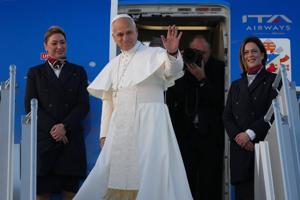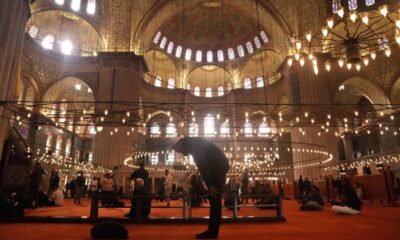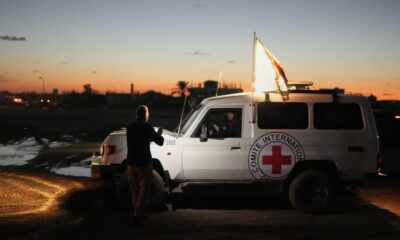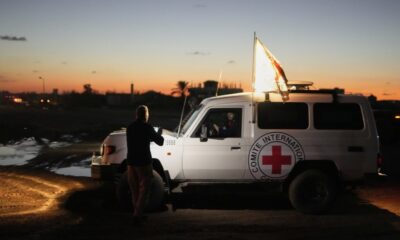Entertainment
Pope Leo XIV Begins Historic First Trip to Turkey Amid Tensions
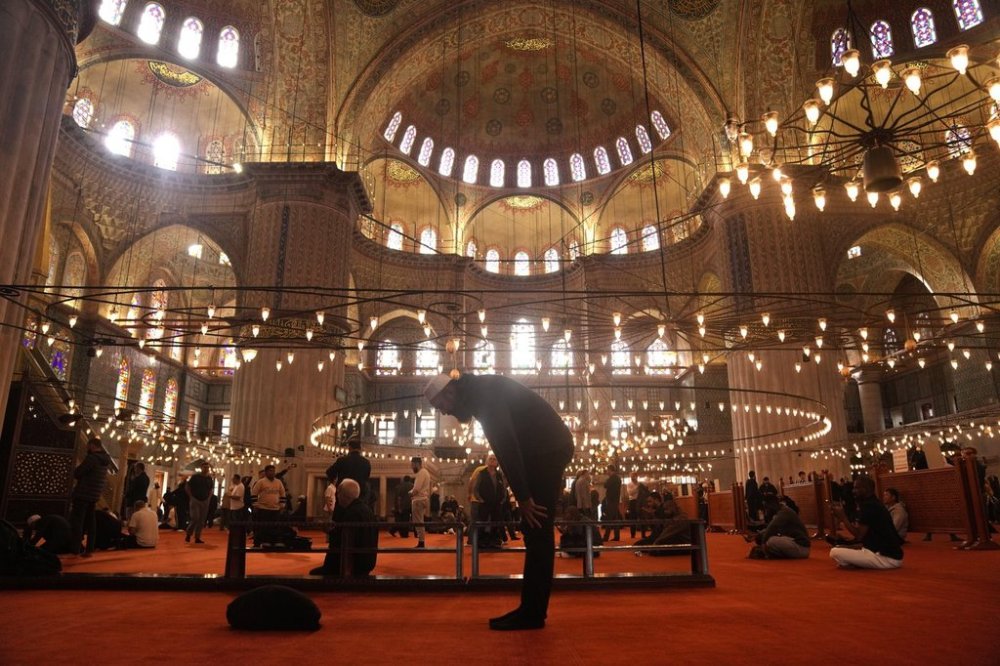
Pope Leo XIV embarked on his first international journey on March 14, 2024, arriving in Turkey to commemorate significant religious milestones and promote peace amidst ongoing conflicts. This visit aligns with the late Pope Francis’ vision to observe the 1,700th anniversary of the Council of Nicaea, the first ecumenical council in Christianity. The Pope’s trip comes at a time when tensions are high due to the war in Ukraine and escalating issues in the Middle East.
Upon his arrival in Ankara, the Pope is scheduled to meet with Turkish President Recep Tayyip Erdogan and address the diplomatic corps. Following his time in the capital, Pope Leo will travel to Istanbul for three days filled with ecumenical and interfaith engagements, which are expected to foster dialogue and understanding among religious communities.
Turkey has positioned itself as a critical mediator in both the Ukrainian and Gaza conflicts. The country has hosted discussions between Russia and Ukraine and has offered to contribute to stabilization efforts in Gaza, initiatives that the Pope may acknowledge during his speeches. Despite these diplomatic efforts, many Turks are currently preoccupied with domestic economic challenges, which has led to a lower public profile for the Pope’s visit.
In Istanbul, Pope Leo XIV will participate in significant religious events, including prayers with Ecumenical Patriarch Bartholomew, the leader of Orthodox Christians worldwide. They will gather at the site of the historic Council of Nicaea to sign a joint declaration promoting Christian unity. This anniversary is particularly poignant given the historical schism between Eastern and Western churches that occurred in 1054, largely over the primacy of the pope.
The Pope’s itinerary also includes a visit to the Blue Mosque, where he will preside over an interfaith meeting. Imam Asgın Tunca, who will welcome the Pope, expressed hope that this visit will enhance Christian-Muslim relations and dispel misconceptions about Islam. Tunca emphasized the importance of hospitality as a reflection of their faith.
While Turkey has made strides in improving the rights of religious groups under Erdogan’s government, challenges remain. According to a U.S. State Department report, Christian groups still face hurdles when attempting to register churches, which affects their operational legitimacy. The Catholic Church in Turkey, with approximately 33,000 members, lacks formal legal recognition, complicating its status and operations.
The Pope’s visit will also touch upon sensitive historical issues. On March 17, 2024, he is scheduled to visit the Armenian Apostolic Cathedral in Istanbul, a site that has hosted previous popes except for Francis, who met with the Armenian patriarch during a hospital visit in 2014. Francis’ later remarks regarding the Armenian genocide sparked diplomatic tensions with Turkey, which has long denied the term’s applicability to the events of 1915.
Pope Leo XIV has generally approached such topics with caution, and it remains to be seen how he will navigate these historical sensitivities during his visit. The Vatican’s relationship with Armenia has also been strained due to its efforts to engage with Azerbaijan, further complicating the geopolitical landscape.
Ultimately, Pope Leo XIV’s trip to Turkey represents both a continuation of his predecessor’s legacy and an opportunity to strengthen ties across diverse faiths in a region marked by conflict and cultural richness. As the Pope seeks to promote peace and unity, his visit could have lasting implications for interfaith dialogue in both Turkey and beyond.
-

 Politics3 weeks ago
Politics3 weeks agoSecwepemc First Nation Seeks Aboriginal Title Over Kamloops Area
-

 World4 months ago
World4 months agoScientists Unearth Ancient Antarctic Ice to Unlock Climate Secrets
-

 Entertainment5 months ago
Entertainment5 months agoTrump and McCormick to Announce $70 Billion Energy Investments
-

 Lifestyle4 months ago
Lifestyle4 months agoTransLink Launches Food Truck Program to Boost Revenue in Vancouver
-

 Science5 months ago
Science5 months agoFour Astronauts Return to Earth After International Space Station Mission
-

 Technology3 months ago
Technology3 months agoApple Notes Enhances Functionality with Markdown Support in macOS 26
-

 Top Stories2 months ago
Top Stories2 months agoUrgent Update: Fatal Crash on Highway 99 Claims Life of Pitt Meadows Man
-

 Lifestyle3 months ago
Lifestyle3 months agoManitoba’s Burger Champion Shines Again Amid Dining Innovations
-

 Politics4 months ago
Politics4 months agoUkrainian Tennis Star Elina Svitolina Faces Death Threats Online
-

 Sports5 months ago
Sports5 months agoSearch Underway for Missing Hunter Amid Hokkaido Bear Emergency
-

 Politics4 months ago
Politics4 months agoCarney Engages First Nations Leaders at Development Law Summit
-

 Technology5 months ago
Technology5 months agoFrosthaven Launches Early Access on July 31, 2025

